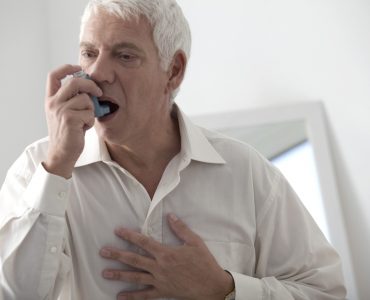If you are suffering from COPD, managing its effects is very important since there is no cure as such for the disease. Focusing on improving the quality of life and minimizing severity and frequency of COPD should be your main aim. Yes, the damage it can cause to your lungs is irreversible, but there are certain medications that help you cope with the disease in a better way. Constant research has also opened doors to new COPD medications. These medications help to reduce the signs and symptoms of COPD.
While bronchodilators that work to open up airways and inhaled corticosteroids that help to minimize inflammation in the lungs are two of the most commonly used treatment methods in COPD, there are better and improved treatments available that work to enhance lung function and bring other symptoms to rest. Of course, at the moment, COPD treatment inhaleris the first line of treatment for many patients.
However, research is ongoing to find new treatments for COPD. One new treatment that may address the lung damage before onset of full-blown COPD looks to prevent oxidative stress damage to cells. This damage occurs due to free radicals that have not been eliminated by antioxidants and inflammation. This new treatment believes that antioxidants extracted from broccoli and specific genetic disrupters may help treat COPD.
There is also a new COPD medicationthat looks to treat patients to avoid worsening of symptoms. When symptoms exacerbate, prognosis becomes poor and patients often land in the hospital, as a result. However, doctors would advise you to take annual influenza and pneumonia shots to avoid lung infection. You may also be put on antibiotics or some other medication to treat as well as prevent infections that can aggravate your condition.
There are some patients who may be eligible for surgery. One is bullectomy, which involves removing bullae (air-filled sacs in the lung) to facilitate airflow. Sometimes, the volume of the lung can also be reduced by surgically removing the damaged portion. As a result, lung function improves. The last resort could lung transplant. While these surgical procedures are new treatments for COPD, it is important to note that they do have possible complications and side effects, and the three procedures look to improve your quality of life.
Researchers are aware that inflammation often makes it difficult for COPD patients to breathe. Hence, they believe that a new COPD medication, which is biologic in nature, could help fight inflammation and make it easier for patients to breathe.
A new drug called p38 MAP kinase inhibitor may work to reduce inflammation in the airways. There are other medications that block proteins that cause inflammation. A protein called CXCR2 has a role to play in lung disease. Hence, researchers have developed antagonists to this protein to combat lung inflammation. Currently the CXCR2 antagonists are under clinical trials.
Other new COPD medications that are in the pipeline include epoxide hydrolase inhibitor and selective glucocorticoid receptor modulator. The former helps to ease lung inflammation caused due to tobacco smoke while the latter assist steroids to work better when treating COPD. Also, selective glucocorticoid receptor modulators ensure that you experience fewer side effects due to steroids.
If you are suffering from COPD, you should also ensure you visit your dentist regularly. The disease can lead to dry mouth and increases the likelihood of getting tooth decay, gingivitis and periodontal disease. So, if you have dental issues, schedule regular appointments. You may require dental implants. Don’t let dental implants pricefrighten you, as you can speak to your dentist and get affordable dental implants.
These are some of the new treatments for COPD. Speak to your doctor about these treatments and find out if you are eligible for them. Remember, there is no cure for COPD, and doctors look to slow down the progression of the disease and improve symptoms and quality of life.













